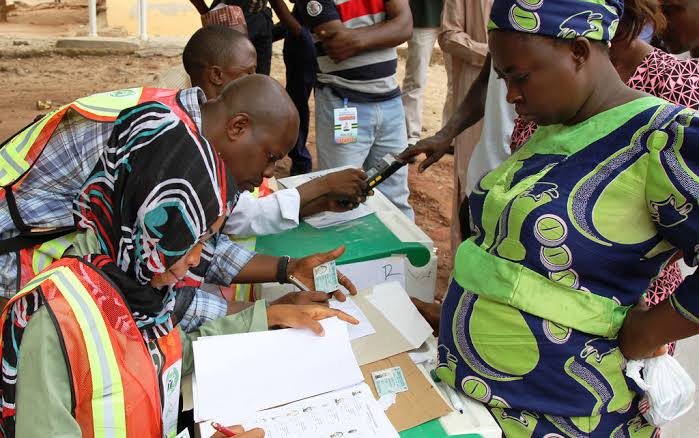Maureen Okpe
The West Africa Civil Society Institute (WACSI) has stated that the forth coming 2023 election will decide the strength of the country’s democracy, noting this will pose a key test to the political settings.
Executive Director of WACSI, Nana Afadzinu, who made this known on Wednesday in Abuja at the launch of WACSI Node, Nigeria; a liaison office that connect the different types of civil society organisations, organs, actors and their partners to the various service offerings it provides calls for a sustainable democracy.
Afadzinu said that the world is in perilous times, a critical time in Africa’s democratic journey and the role of civil society was even more heightened and questioned.
“This ,she said was in the response to the post-covid challenges, global economic crisis, and growing discontent among people as many express their angst with the lack of dividends from our democratic project.
“In a region plagued with other challenges including Islamic militant insurgency, disputed elections, restriction of media freedom and civic space, inadequate citizen participation in their own governance and weak oversight institutions.
“The region is at a crossroad and for Nigeria, the 2023 elections would pose a key test of the strength of the country’s democracy.’’
“We are in perilous times. This is a critical time in our democratic journey and in the response to the post-covid challenges, global economic crisis, and growing discontent among our people as many express their angst with the lack of dividends from our democratic project.
“In the past two years, this situation has created fertile ground for the return of military coups in some parts of West Africa. One has to mention what has also been termed constitutional coups- the manipulation of constitutions by incumbent governments to prolong their terms of office.
According to her, there is democratic retrogression and the region is plagued with other challenges including Islamic militant insurgency, disputed elections, restriction of media freedom and civic space, inadequate citizen participation in their own governance and weak oversight institutions.
“Civil society in Nigeria has a significant role to play in responding to these challenges. Nigeria’s position in Africa’s geo-politics cannot be underestimated and a strong civil society in Nigeria bodes well not only for Nigeria but for West Africa and indeed the continent as a whole.
“In the past two years, this situation has created fertile ground for the return of military coups in some parts of West Africa. One has to mention what has also been termed constitutional coups- the manipulation of constitutions by incumbent governments to prolong their terms of office; these are clear signals that there is democratic retrogression.
“The region is at a crossroad and for Nigeria, the 2023 elections would pose a key test of the strength of the country’s democracy,” she said.
Afadzinu while urging CSO’s to respond to these challenges, noted that Nigeria’s position in Africa’s geo-politics cannot be underestimated and a strong civil society in Nigeria bodes well not only for Nigeria but for West Africa and the continent in general.
She said notwithstanding these developments, CSOs in Nigeria continued to face challenges including technology access and affordability, cybersecurity challenges, dwindling donor funding,weakening institutions a marginalisation of civil society within the policy space among others.
She said that added to these were the increasing constraints of the shrinking civic space which would limit their effectiveness.
“Over the years, we have witnessed a keen and overwhelming interest in and demand for WACSI’s programmes and services by civil society actors in Nigeria.
“This influenced our decision to establish a physical presence in Nigeria and Nigerian CSOs will now have greater and easier access to WACSI’s programmes, products and services to enhance their knowledge capacity and strengthen their institutions.
“This would enable them to strengthen their efficiency, effectiveness, influence, resilience and sustainability.
“The WACSI Node, which is based here in Abuja, will serve as a liaison office and connect the different types of civil society organisations, organs and actors (not only NGOs) and their partners to the various service offerings provided by WACSI. ‘’
The Executive Director said these included training, mentoring, and coaching to strengthen capacity in institutional governance, management, and operations of civil society organisations as well as providing space for civil society actors to connect and strategize on issues pertaining to development.
She added that the official entry of WACSI would help CSOs build the resources and infrastructure that supports local philanthropy so CSOs could on their own raise resources to support development in addition to what partners would do.
she said there would be work around the politisation of CSOs in the sense of awareness creation on the notion that citizens have a say in their governance , political stance.
Prof. Adebayo Olukoshi of Wits School of Governace, Johannesburg, South Africa, in his remarks applauded the initiative to strengthen CSOs in West Africa.
According to Olukoshi, this was in order to be able to respond to the many discontents of democratization, which have been witnessed over the last 20 to 25 years across West Africa. A point in time when democracy is under severe threat in West Africa especially in the context of a global recession in democracy, civil society has an important duty of re-organising and retooling itself.
“To do so, will require first and foremost what I call a re-politicisation of civil society, in other words , civil society should be able to define what the key challenges around the vision of transformation in West Africa can be organised and then proceeding to socialise its membership around that vision.
“They should also simultaneously building a narrative that will enable that vision to become the framing context within which political actors are able to carry out their operations.
“We must be awake to the soul of our sub-region, retool ourselves ,manage geo-politics in a way that does not set us back and WACSI’snode in Nigeria will be a healing abode,” he said.

